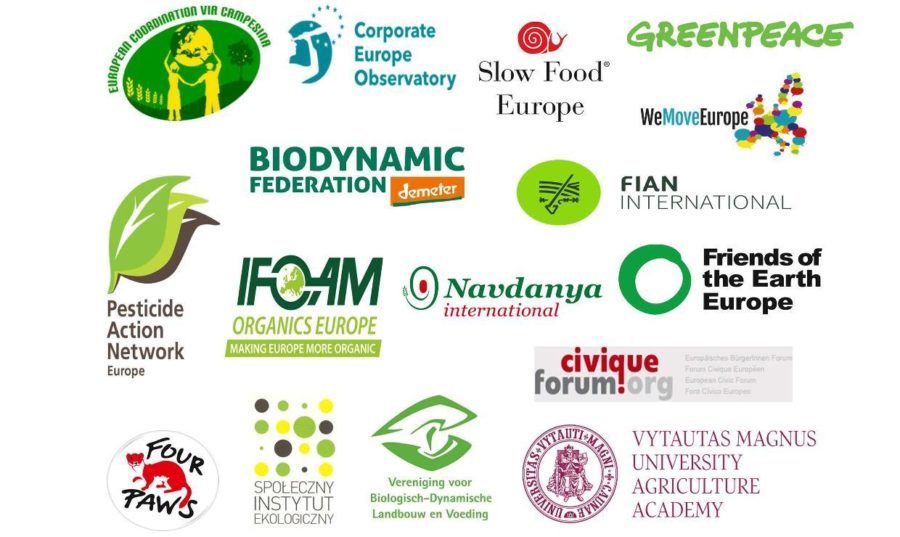
IFOAM Organics Europe, 30 March 2021 | Source
BRUSSELS, 30 MARCH 2021 – Today, a large coalition of 162 civil society, farmers and business organisations calls on Vice President of the Commission Timmermans to ensure all organisms derived from new genetic engineering techniques continue to be regulated in accordance with existing EU GMO standards – upholding the precautionary principle, safeguarding a high level of protection and the right of farmers and consumers to choose what they plant and eat.
The call comes as the Commission is expected to present its views on the future regulation of “new genomic techniques” at the end of April, based on an in-house study mandated by the EU Council of Ministers. Since the European Court of Justice ruled in 2018 that organisms obtained with new genetic modification techniques must be regulated under the EU’s existing GMO laws, there has been intense lobbying from the agriculture biotech industry to weaken the legislation.
“There are no scientific or legal reasons to exempt new genomic techniques from risk assessment, traceability and labelling. The use of genetic engineering technologies on plants and animals, and their release into the environment and the food chain, can have far-reaching impacts and must remain regulated,” said Eric Gall, IFOAM Organics Europe Policy Manager. He continued: “Transparency on their use should continue to apply all along the food production chain. Weakening the regulation of these powerful technologies would contradict the objectives of the EU Green Deal and the Farm to Fork and Biodiversity strategies.”
According to the initiative ‘Save our Seeds’ (SOS), which coordinates the European campaign “Stop Gene Drives”, a particularly worrying application of new genomic techniques are so called gene drives. “The gene drive technology enables the decimation or eradication of entire populations of wild organisms (of which most prominently insects) which is suggested, amongst others, as a novel tool for agricultural pest management. In times of mass extinction, the eradication of species via genetic engineering is not acceptable. A global moratorium on the release of gene drive organisms is needed to uphold European law and the precautionary principle.”
According to the signatories of the letter to the Commission, scientific publications show that new techniques of genetic modification allow developers to make significant genetic changes, which can be very different from those that happen in nature. Moreover, new techniques of genetic modification can cause a range of unwanted genetic modifications that can result in the production of novel toxins or allergens, or in the transfer of antibiotic resistance genes, or in traits which could raise food safety, environmental or animal welfare concerns.
European civil society and its food production sector are deeply concerned about attempts to deregulate an emerging new generation of genetically modified (GM) crops and animals engineered with new genomic techniques [i], such as CRISPR/Cas.The European Court of Justice ruled that this new generation of genetically modified organisms must be regulated under the EU’s existing GMO laws [ii]. Their exclusion from the EU GMO directive “would compromise the objective of protection pursued by the directive and would fail to respect the precautionary principle which it seeks to implement,” according to the Court (para 53 of the ruling).
Ends.
More information
The letter sets out three key demands:
- No weakening of EU GMO regulations, and to ensure the full application of the ECJ ruling of 25 July 2018 in line with the precautionary principle.
- A strong Commission response to the UK’s consultation regarding a possible change in regulations, which would represent a clear breach of the TCA’s principle of non-regression.
- Support a global moratorium on the environmental release of gene drive organisms for precautionary reasons at international level, as called for by the European Parliament.[iii]
Signatories of the letter are 162 organisations representing civil society, farmers and business. Read the full letter.
Notes
[i] According to the European Council, new genomic techniques [new mutagenesis techniques] must be defined in the light of the ECJ ruling in case C-528/16. They therefore include all genetic modification techniques “which appeared or were mostly developed since Directive 2001/18 was adopted” (para 51 of the Ruling of the European Court of Justice, 25 July 2018, Case C 528/16).
[ii] arguing that “the risks linked to the use of those new techniques/methods of mutagenesis might prove to be similar to those which result from the production and release of a GMO through transgenesis. It thus follows from the material before the Court, first, that the direct modification of the genetic material of an organism through mutagenesis makes it possible to obtain the same effects as the introduction of a foreign gene into that organism and, secondly, that the development of those new techniques/methods makes it possible to produce genetically modified varieties at a rate and in quantities quite unlike those resulting from the application of conventional methods of random mutagenesis.“ (para. 48 of ECJ ruling quoted in note [i])
[iii] European Parliament resolution of 16 January 2020 on the 15th meeting of the Conference of Parties (COP15) to the Convention on Biological Diversity (2019/2824(RSP)) (para 13)
